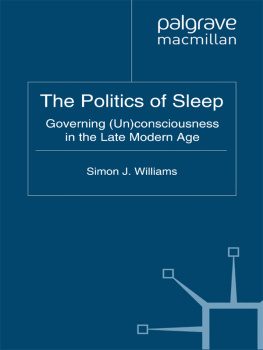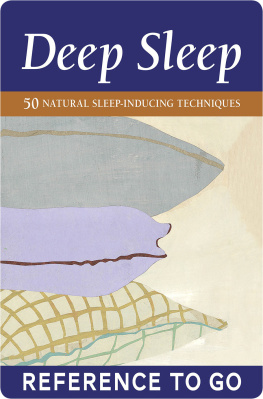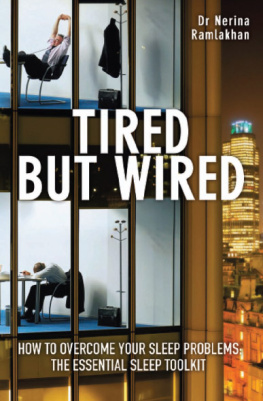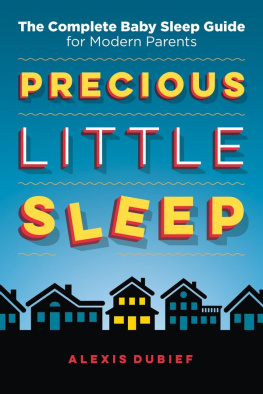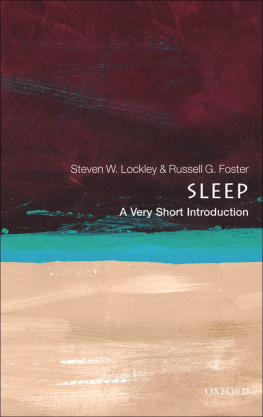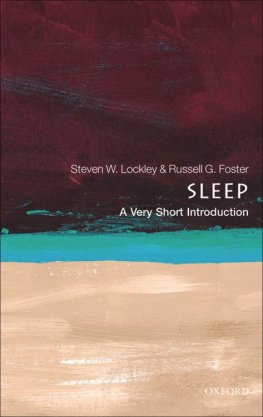The Politics of Sleep
Also by Simon J. Williams
SLEEP AND SOCIETY: Sociological Ventures into the (Un)known
DEBATING BIOLOGY: Sociology Reflections on Health, Medicine and Society (co-edited)
EMOTIONS AND SOCIAL LIFE (co-edited)
EMOTION AND SOCIAL THEORY
GENDER, HEALTH AND HEALING: The Public/Private Divide (co-edited)
MEDICINE AND THE BODY
HEALTH, MEDICINE AND SOCIETY: Key Theories, Future Agendas (co-edited)
MODERN MEDICINE: Lay Perspectives and Experiences (co-edited)
PHARMACEUTICALS AND SOCIETY: Critical Discourses and Debates (co-edited)
THE LIVED BODY: Sociological Themes, Embodied Agendas
CHRONIC RESPIRATORY ILLNESS
The Politics of Sleep
Governing (Un)consciousness in the Late Modern Age
Simon J. Williams
University of Warwick, UK


Simon J. Williams 2011
All rights reserved. No reproduction, copy or transmission of this publication may be made without written permission.
No portion of this publication may be reproduced, copied or transmitted save with written permission or in accordance with the provisions of the Copyright, Designs and Patents Act 1988, or under the terms of any licence permitting limited copying issued by the Copyright Licensing Agency, Saffron House, 6-10 Kirby Street, London EC1N 8TS.
Any person who does any unauthorized act in relation to this publication may be liable to criminal prosecution and civil claims for damages.
The author has asserted his right to be identified as the author of this work in accordance with the Copyright, Designs and Patents Act 1988.
First published 2011 by
PALGRAVE MACMILLAN
Palgrave Macmillan in the UK is an imprint of Macmillan Publishers Limited,registered in England, company number 785998, of Houndmills, Basingstoke, Hampshire RG21 6XS.
Palgrave Macmillan in the US is a division of St Martins Press LLC, 175 Fifth Avenue, New York, NY 10010.
Palgrave Macmillan is the global academic imprint of the above companies and has companies and representatives throughout the world.
Palgrave and Macmillan are registered trademarks in the United States,the United Kingdom, Europe and other countries.
ISBN: 9780230223660 hardback
ISBN: 9780230223677 paperback
This book is printed on paper suitable for recycling and made from fully managed and sustained forest sources. Logging, pulping and manufacturing processes are expected to conform to the environmental regulations of the country of origin.
A catalogue record for this book is available from the British Library.
A catalog record for this book is available from the Library of Congress.
10 9 8 7 6 5 4 3 2 1
20 19 18 17 16 15 14 13 12 11
Printed and bound in Great Britain by
CPI Antony Rowe, Chippenham and Eastbourne
To the memory of my Dad, Alan George Williams (17 October 192031 January 2008), who lives on through me and my boys Jacob and Adam
Contents
Acknowledgements
Thanks to Philippa Grand at Palgrave Macmillan for encouraging me to write this book and to the University of Warwick for the study leave granted to do so. Thanks too to various friends, colleagues and acquaintances over the years who have shaped in innumerable ways the arguments and ideas, still in progress, that follow in the pages of this book, particularly Jon Gabe, Nick Crossley, Peter Conrad, Kenton Kroker, Philip Hancock, Mathew Thomson, Tom Crook, Steve Kroll-Smith, Brigitte Steger, Lodewijk Brunt, Sara Arber, Rob Meadows, Jenny Hislop, Sharon Boden, Clive Seale, Pam Lowe, Cathy Humphreys, Gill Bendelow, Paul Martin, John Abraham, Nigel Thrift, Nick Lee, Steve Fuller, Paul Higgs, Stephen Katz, Wendy Martin and Deborah Steinberg apologies to anyone Ive missed out here! Thanks also to Jon Gabe and Gill Shreir for comments on various bits of this book, to Angela Munro for her professional guidance, good humour and support and to Ruth Charity (as always) for putting up with me both during the writing of this book and in general!
At a rough guesstimate, I have consumed around about 840 cups of coffee and 560 cups of tea during this writing project, many in cafes I frequented if not colonised or squatted in during my sabbatical, so thanks are also probably due on this count to those friendly folks, particularly Monia Smielewska, who have fuelled and indeed benefited from my caffeine consumption and, in so doing, kept me alert/awake or wired enough courtesy of this popular drug of ours to complete this book project more or less on schedule, give or take a few months!
Last but not least, a nod in the direction of my two young boys and aspiring superheroes, Jacob and Adam (aka Batman and Robin), those saboteurs of my sleep and regular intruders into my office space, whom I love to bits but without whose help this book would undoubtedly have been finished oh so much sooner! Thanks a bunch, boys. I owe you ...
Introduction: The Politics of Sleep?
To speak, let alone to write, about the politics of sleep may appear strange if not absurd. Is there indeed, one might justifiably ask, by any stretch of the imagination, a politics of sleep we can meaningfully point to, or even expect, in the near future?
The central argument of this book is that a politics of sleep is indeed not simply possible but evident in a variety of ways. Sleep, I will argue and demonstrate, is political through and through. Political, that is to say, in the sense that sleep is clearly implicated and imbricated in relations of power, authority and expertise as a site and source of claims-making, if not crisis, contestation, controversy and critique. We may in this respect, as with other aspects of the body, speak of the regulation or governance of sleep and associated socio-political issues regarding the problems, promises and prospects of sleep. This, for example, includes the rights, risks and responsibilities associated with sleepy, sleeping and sleepless bodies and, in a more critical if not radical vein perhaps, the ways in which sleep, qua unconscious somatic state, constitutes not simply a vital albeit temporary corporeal release but a potentially potent site or source of corporeal protest, refusal or resistance in an increasingly relentless if not restless or ravenous age: a wired awake world indeed we might say. In our fast, flexible, work-dominated, efficiency-driven societies, moreover, as Hoffman comments, sleep problems are no longer a purely personal idiosyncrasy a symptom,
To consider sleep in this way, then, invites or encourages us to reflect upon the complex regulatory fields that govern not simply our waking but our sleeping lives as another problem or facet of power, politics and personhood, both past and present. My use of the term politics, as this suggests, is intentionally broad and wide-ranging, extending far beyond the formal political sphere or familiar references to the sleep-deprived lives of those weary or bleary-eyed politicians, to encompass many issues which, on closer inspection, turn out to be not simply political but biopolitical in character: vital political matters, that is to say, to do with the governance of bodies and hence the politics of life itself (cf. Rose 2007; Rabinow and Rose 2006; Foucault 1991). If sleep after all is another vital part of life, then its governance unsurprisingly perhaps is biopolitical through and through, particularly in the neo-liberal if not bio-liberal era where life itself is subsumed and capitalised upon in a multitude of ways as yet another asset or value.
Next page
